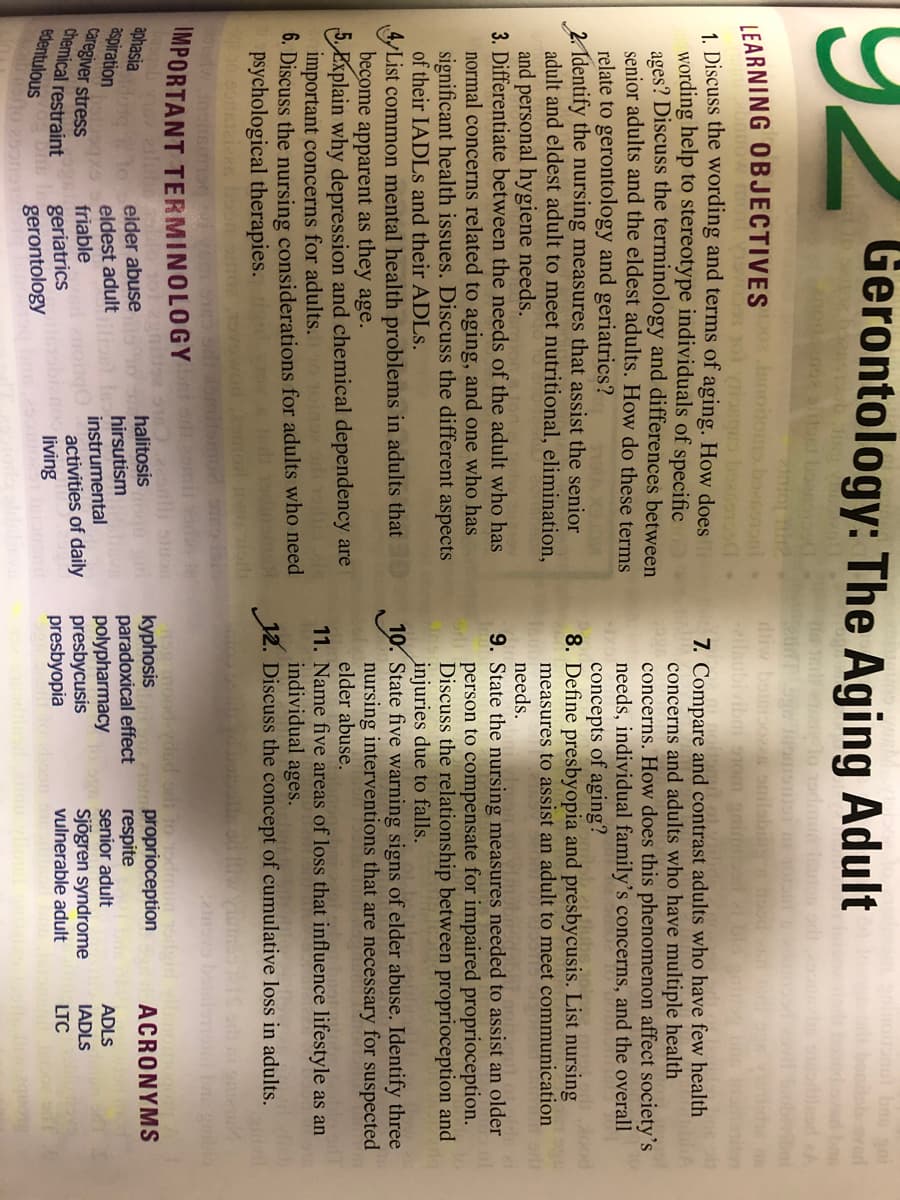LEARNING OBJECTIVES lenoons booont 1 Discuss the wording and terms of aging. How does wording help to stereotype individuals of specific ages? Discuss the terminology and differences between senior adults and the eldest adults. How do these terms relate to gerontology and geriatrics?
Essential nutrients
These are the organic compounds present in the food that provide nourishment essential for the development and growth of our body. Nutrients not only provide us with the required energy to carry out various biological processes but are also the building blocks for repair and growth in our bodies.
Vitamins
The vitamins are organic molecules required in low concentration for the proper functioning of the body. They cannot be generated in the organism and are taken into the body through the diet. The lack of proper vitamins results in diverse deficiency disorders. They are thus called essential nutrients. The important vitamins are vitamin A, vitamin B complex, vitamin C, vitamin D, vitamin K, and vitamin E.

Trending now
This is a popular solution!
Step by step
Solved in 2 steps




